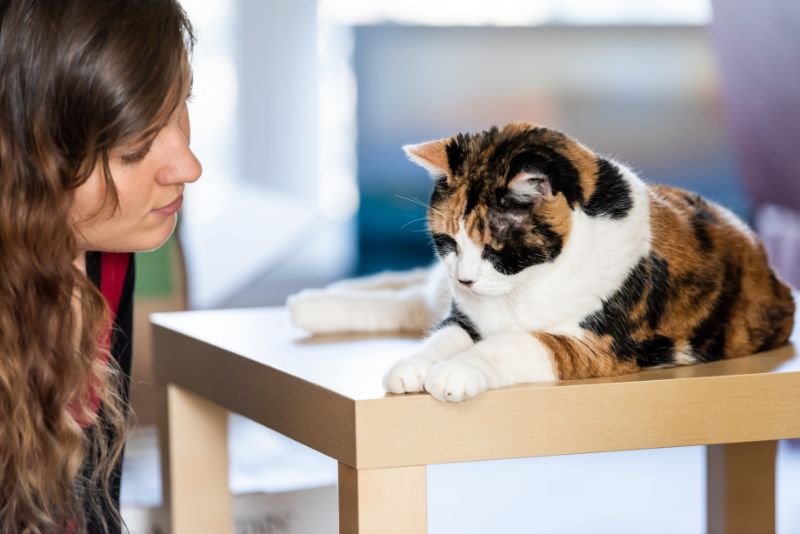Do Pets Feel Guilt (and Other Complex Human Emotions)?

A dog owner generally knows when their pup did something they knew was wrong. With tucked ears, droopy eyes, and a sad-looking scowl, their admission of naughtiness is written all over their face. But while the appearance of shame is super obvious to us, experts aren’t convinced that pets feel guilt the same ways that we do. That doesn’t mean, however, that pets don’t have their own versions of an emotional spectrum.
What Did You Do?
It sure does look like pets feel guilt, but their expressions stem from an instinctive submissive response. When we ask a pet if they’re responsible for a puddle on the floor, or chewed up shoe we’re typically looming over them, using direct eye contact, and choosing a sharp tone of voice.
Pets may not know exactly what’s going on in this moment (especially if your reaction is hours after the incident), but they do understand that their owner is the alpha, or dominant, figure and they have to show they recognize their place in the household hierarchy.
The Basic Feels
So, while researchers doubt that pets feel guilt there’s abundant evidence that they experience primary emotions like happiness, sadness and fear. Secondary emotions, such as shame or guilt, are highly complex. While the pets we know and love are extremely intelligent, they just don’t have the cognitive ability to feel and process complicated emotions like guilt.
Pets Feel Guilt
Pets learn pretty early on the ways they can please their owners and work pretty hard to do so. When they recognize their owners are mad they try what has worked in the past to placate them. This could mean that their droopy eyes and tucked tail are designed to evoke a response that is less angry or frustrated.
Keep It Real
Pet owners should know that after they’ve done something wrong, try not to scold, punish or shame your pets. They likely won’t make the connection between whatever they did and your level of irritation. Sure, you can try to help them with the association if/when you catch them in the act, but even then training is your best bet to limit unwanted behaviors.
The takeaway is to stay calm and neutral when they do something bad. Reward the behaviors that you want to see more off. Eventually, they’ll learn the best ways to please you, their pack leader.
A Step Ahead
If you need additional support with questions regarding your pet’s behavior or personality, our staff at Leon Valley Veterinary Hospital are always here to help!


